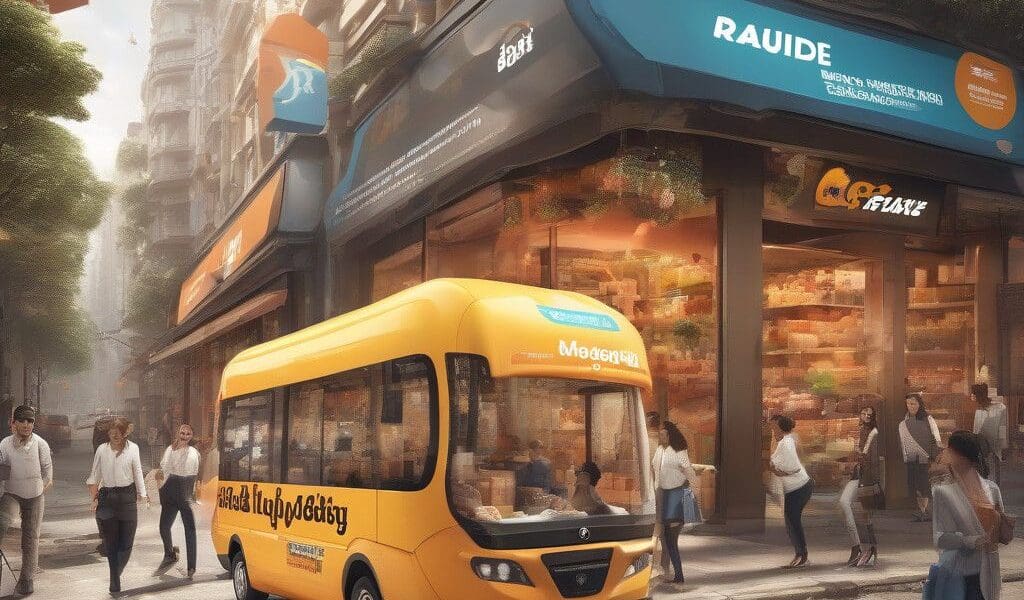In a significant move set to reshape the e-commerce landscape, Reliance Retail has entered the quick commerce market, bringing fierce competition to existing players like Blinkit, Swiggy Instamart, and BigBasket. Launching its services initially in select areas of Navi Mumbai and Bengaluru through JioMart, Reliance aims to establish a robust presence in a sector that is rapidly gaining momentum.
Reliance’s strategy capitalizes on its extensive network of approximately 3,000 retail stores nationwide, offering grocery items with an ambitious delivery goal of 10-30 minutes. While competitors typically incorporate delivery fees, Reliance has announced a unique approach: no delivery, platform, or surge fees. This eliminates barriers to entry for customers, presenting a compelling reason to choose JioMart over existing platforms.
Delivery Model and Product Range
Reliance’s quick commerce initiative will focus on grocery deliveries, leveraging its network to fulfill orders from local stores. According to a senior executive, the plan includes expanding offerings to include value fashion items and small electronics, like smartphones, laptops, and speakers. The goal is to provide a diverse selection ranging between 10,000 to 12,000 stock keeping units (SKUs), far exceeding what competitors currently offer.
Unlike other quick commerce businesses, Reliance will not rely on dark stores or neighborhood warehouses. Instead, the company will utilize its acquired logistics service, Grab, for order fulfillment. This points to a strategy that minimizes upfront investment in new infrastructure while maximizing the use of existing resources.
The convenience factor cannot be overstated; each grocery store is set to deliver within a three-kilometer radius, dramatically enhancing accessibility for customers. In response to challenges posed by heavy urban traffic, the executive acknowledged the need for real-time logistics management to ensure timely deliveries during peak hours.
Entering Untapped Markets
To further secure its position as a leader in quick commerce, Reliance is strategically targeting smaller, often overlooked cities and towns. This demographic could present an entirely new customer base, largely unattached to current platforms like Blinkit, creating an opportunity for Reliance to anchor itself within those markets. Analysts have noted that quick commerce is rapidly emerging as a critical channel for fast-moving consumer goods, accounting for 30-35% of total online sales.
Reliance’s calculated approach involves offering discounts and a no-fee structure to foster customer loyalty and engagement. This aggressive pricing model is expected to accelerate market penetration, thereby gaining market share in a landscape currently dominated by established players.
Fine-Tuning Delivery Processes
History shows that Reliance has utilized its business acumen to streamline operations effectively. Earlier this year, the company aimed to reduce delivery timelines under a hyperlocal initiative, eventually refining this to a target delivery window of 10–30 minutes for JioMart. By simplifying the delivery process—wherein each order will be fulfilled by a dedicated delivery bike or cycle—Reliance is taking steps to enhance operational efficiency while catering to the increased demand for speed.
Devangshu Dutta, the chief executive at consulting firm Third Eyesight, stated that Reliance has the potential to adopt a hybrid model, balancing quick deliveries near stores while managing scheduled deliveries in farther locations. This flexibility will allow the retailer to adapt to various market circumstances effectively.
The Competitive Context
The quick commerce surge is indicative of shifting consumer preferences towards speedy, hassle-free delivery options, particularly amongst urban populations. With competitors like Zomato and Blinkit already well-entrenched, Reliance’s entrance creates a fresh dynamic that could provoke responses, ranging from promotional pricing to enhanced service offerings.
As Reliance Retail continues to roll out these services, the market will closely observe how its strategies perform against the backdrop of existing quick commerce players. There’s a clear advantage to having deep pockets; Reliance’s robust financial foundation allows it to invest heavily in customer acquisition strategies without immediately worrying about profit margins.
The quick commerce market is heating up, and as Reliance Retail aims to carve out its share, it’s important for retailers to rethink their delivery and pricing strategies. A focus on innovation paired with comprehensive market analysis may prove vital in maintaining a competitive edge in this burgeoning sector.
In conclusion, Reliance Retail’s entrance into quick commerce signals a new era in e-commerce, particularly within the grocery sector. Their customer-centric approach, innovative delivery logistics, and strategic targeting of underserved markets are poised to disrupt the status quo significantly.











